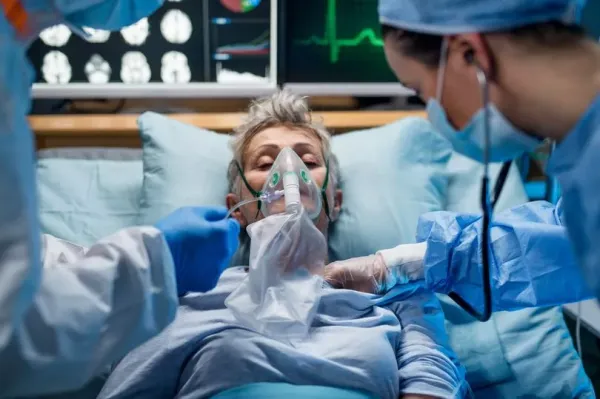
Pneumonia, an infection causing inflammation of the lung tissue, can make breathingdifficult and in severe cases, it can be life-threatening by cutting off your air supply. However, for many, this common chest infectionmay not lead to such dire consequences.
Typically, patients are prescribed antibiotics and should recover within two to four weeks, while some might find the infection clears up on its own if it's a mild case.
However, those who develop a more serious illness may require hospitalisation for urgent treatment to prevent the infection from becoming fatal.
The NHS urged people experiencing these pneumonia symptoms to call 999:

People experiencing the following symptoms are urged to see their GP or contact 111:
In the hospital, patients will receive fluids and antibiotics to treat the infection. They may also be given oxygen to assist with their breathing.
Individuals aged over 65, infants and toddlers, or those suffering from heart disease, chronic respiratory conditions or who feel severely unwell, face heightened risks of developing serious complications requiring hospital admission if they develop pneumonia.

The condition typically causes symptoms including a cough producing yellow or green phlegm, breathing difficulties, elevated temperature, chest discomfort, bodily aches, extreme fatigue and reduced appetite. Patients may also experience mental confusion if elderly or notice their poorly infants producing grunting sounds.
For those managing their pneumonia at home, the NHS advises against using any cough suppressants. It notes: "Coughing helps your body get rid of the infection."
Rather, it recommends taking paracetamol or ibuprofen for discomfort, getting adequate rest, staying indoors or limiting contact with others, and drinking plenty of fluids to aid recovery.
Multiple vaccines exist to shield people from various infections capable of causing pneumonia. These include the pneumococcal jab, influenza vaccine, RSV immunisation and Covid-19 vaccination.